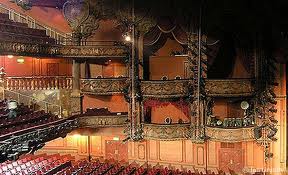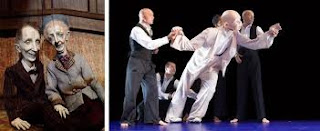A fantastic "Lyceum Theatre" is a 2000-seat West End Theatre, which is located in the city of Westminster, on Wellington Street, just off the coast. There was a theater of that name in place since 1765, and the current site opened on July 14, 1834 to a design by Samuel Beazley. The building was unique in that it was on the balcony overlooking the circuit. This partnership has been built from Beto and Grissell.
Retains the existing building facade Paisley and the great hall, but the theater is pretty much behind the design of the 1904 Bertie Crewe, restore the use of the play in 1996 by Holohan Architects, after a long period of use as a Hall of Mecca.
Lyceum Theatre: the early years
Built the first Old Lyceum Theatre in 1765 on a nearby site, in the late 18 th century, and musical entertainment provided by Charles Dibdin. The famous actor David Garrick also performed at the Lyceum. Between 1794 and 1809, the building was used as a circus, brought by Philip Astley theater when it was burned down at Westminster, then the chapel, concert hall, and exhibition of the first London waxworks Madame Tussauds, which he demonstrated in 1802.
And the stage is "licensed" house in 1809 and until 1812 was used for dramatic presentations by the Company Drury Lane Theatre after the burning of their own, until the construction of the new edifice. In 1816, Samuel Arnold to rebuild the house design by Paisley and open as "English Opera House", but was destroyed by fire in 1830. The house was famous as the first theater in London to be lit by gas and for hosting the London première of Mozart's opera Cosi Fan Tutte. During this period, and the "Glory of the Assembly of steak meat," which had been founded in 1735 by the theater manager Henry Rich, and his home in the theater for more than 50 years until 1867. Members met, who did not exceed 24 in number, every Saturday night to eat and drink wine beefsteaks port.
Lyceum Theatre: Present site
In 1834, opened the House of Representatives this a little to the west, with the interface on Wellington Street, under the name "Lyceum Theatre Royal Opera House and English." Designed theater again before Paisley and cost 40,000 pounds. The new Opera House has defended English instead of Italian opera, which played earlier this century. Composer John Barnett produced a number of works in the first few years of the theater, including the mountain Selph (1834), thanks to the first modern English opera. This was followed by Fair Rosamund in 1837 and Farinelli in 1839 (both the Theatre Royal, Drury Lane), and Blanche of Jersey here in 1840. In 1841-43, enabling the composer Michael Balfe and the National Opera Theatre produced here, but the project did not succeed in the end. The house then became associated with adaptations from the novels of Charles Dickens, Holiday Birth books.For For example, an adaptation of Martin Chuzzlewit Dickens ran for more than 100 presentations 1844-45 here, the long-term time.
Was able to later in the ballroom of Mrs. Lucia Elizabeth Vestris and Charles James Mathews 1847-55, who produced James Blanche "[fairy] farce" featuring spectacular stage effects. Tom Taylor's adaptation of Tale of Two Cities, with Dickens himself adviser, played in 1860, shortly after the end of the sequence and the dissemination of the volume. Charles Fechter, who guided the 1863-67 produce amazing scene was also in favor. In 1866, Dion Boucicault was produced Strike Long (his adaptation Elizabeth Gaskell novels Mary Barton Manchester Crown Lizzie) here. Ethel Lavenu, and his mother and grandmother of actors Tyrone Power, Sr. and Tyrone Power in the number of pieces performed in the theater in the 1860s. Produced by George S.. Gilbert three plays here. In 1863, for the first time play, first professional, uncle of the child. Robin Cook called Clown Jenny Wren ... In 1867, gave him a Holiday Birth pantomime, and in 1884, produced a drama, comedy and tragedy.
In 1889, it seemed best in the world the Italian dramatic tenor, Francesco Tamagno, in the ballroom, singing the leading role in the production of the first London opera Otello by Giuseppe Verdi.
Lyceum Theatre: The Years Irving
Beginning in 1871, under manager Hezekiah Linthicum Bateman and his wife, and appeared in Henry Irving in the theater, among other things, many of the works of Shakespeare. Irving began with the French melodrama The Bells, an instant hit in which he played the mayor in a ghost town. And published a piece of the sell-out crowds for 150 nights, which was a long-term, unusual at that time. Charles I, in 1872 was another blow, to run the 180 nights. In 1874, Irving played Hamlet in the theater, and perhaps the greatest victory, to run the 200 nights. In 1878, after the death of Pittman, and Irving took over management of the theater of his widow. The Builder, September 28, 1878 that there is a difference between Irving and Ms. Bateman on the company's employees in the ballroom. "Said Mr. Irving said Mrs. Pittman that he was resolved to get actors to work with him, and not dolls, but it is no longer playing in the ballroom and the result was that Ms. Bateman has set up stage management, and Mr. Irving takes place." Ms. Pittman has become a theater director of the Sadler Wells.
Continued to Ellen Terry and Catherine in VIIIIrving Henry to star in plays there, Shakespeare in particular, until 1902, and the involvement of co-star Ellen Terry for this entire period Stalker years.Bram 24 work between 1878 and 1898 as manager of the theater, and Irving was Stoker's inspiration for real life, the character Count Dracula in the his 1897 novel, Dracula. He expressed the hope that Stoker Irving, with his girl, huge sweeping, noble manners, and specialized in playing the roles of villain, would play Dracula in the stage adaptation of his novel. However, Irving never agreed to appear in the stage version, although produced at the Lyceum Theatre.
Irving and Terry began with Hamlet in 1878. Ran the 1879 production of The Merchant of Venice Nights 250 is normal, and after the success of Shakespeare's success in December as well as in other major plays. And included the production celebrated the other much ado about nothing, [13] Lady of Lyons Edward George Bulwer - Lytton (1878), Romeo and Juliet, King Lear, and mail by Leon Charles Reid (1883), and Faust is very popular by William Gorman Commandments (1885, of which requests for access to the seats reserved for foreigners), Macbeth (1888, with incidental music by Sir Arthur Sullivan), Henry VII (1892), Beckett, Alfred Tennyson (1893), King Arthur J. Comyns Carr, with incidental music by Sir Arthur Sullivan (1895), [15] Cymbeline (1896) and Sardou Victorien and Emile Power play Madame Sans Gene (1897).
Theatre play when Irving and Terry toured America, as they did several times starting in 1883, and works with actors, including many famous Robertson, Johnston, Forbes, and Mrs. Patrick Campbell, Sarah Bernard Duse Eleanora. Play Martin Harvey, a pupil of Irving one season there in 1899. Seems Benoit Coquelin - stable, as Cyrano de Bergerac in the summer of 1898.
Lyceum Theatre: The Years Later
In 1904, the theater was build and is sumptuously decorated in Rococo style by Bertie Crewe, retaining only the front porch and the original building. The scene of the music hall and variety, in an attempt to compete with the Palace Theatre and the London stadium, but this was not successful, and soon returned the theater to provide drama. From 1909-38 Melville Brothers ran a successful series of the drama is wonderful. In 1919, the minor additional scene by Edward Jones. Between the two, played a drama in the theater for ten months each year, followed by Holiday Birth pantomimes, including the Queen of Hearts in 1938. The Lyceum Theatre London last to continue the practice in early pantomimes concluding with harlequinade, entertainment Standing free from slapstick clowning, juggling and tumbling. The tradition ended with the closure of the theater in 1939.
In 1939, bought the City of London Council building, with plans to demolish to make way for road improvements. Theater closed in that year with the performance of the teacher of Hamlet directed by Sir John Gielgud (Ellen Terry, nephew of the great). Improved through the plans collapsed, and after the war, in 1951, was converted into a huge hall and open that Matthews and his children, and the Lyceum Ballroom. I played many great teams here, including the Oscar Rabin band that is in many cases. In the 1960s and 1970s, the theater was used as a place to pop and television broadcasting. The Grateful Dead, The Clash, Bob Marley & The Wailers, Led Zeppelin, the World Health Organization, Emerson, Lake and Palmer, the Colosseum, U2) and the Smiths, Culture Club all played here. Genesis performance filmed there in May 1980 for broadcast on the old test whistle Grey. These shots show the release of 2007 CD / DVD re-album Duke 1980.
Saw the side of the Lyceum Theatre in 2006, with red displays Lion King visible.A the proposed project from Covent Garden, the Green Light Committee by in 1968 on the stage under threat, along with neighboring Vaudeville, Adelphi, Garrick and Duchess Theatres. Led an active campaign by Equity, and the Union of musicians, and theater owners under the auspices of the campaign to save the theaters of London to abandon this scheme. In 1973, got on stage and the protection grade II *, as set out in spite of internal adaptation and change of use of the current Hall retains much of the work in the Crow.
He said a dark theater in 1986, after the performance of the National Theatre for a walk (in 1985) adaptation of Bill Bryden of the three puzzles. Leased Brent Walker Theatre During this time, but later in the lease to him, and in 1996 has been renovated and converted back to the stage for a musical widespread or Opera (with a pit orchestra big appropriately) by the architects Holohan.
Lyceum Theatre production of modern and contemporary Productions:
Lyceum Theatre before the performance of the Lion King. Observed depends on the Christ Superstar curtainJesus (19 نوفمبر 1996 - 28 March 1998)
Oklahoma! (February 1999 - June 1999)
The Lion King (September 24, 1999 - present)

















































